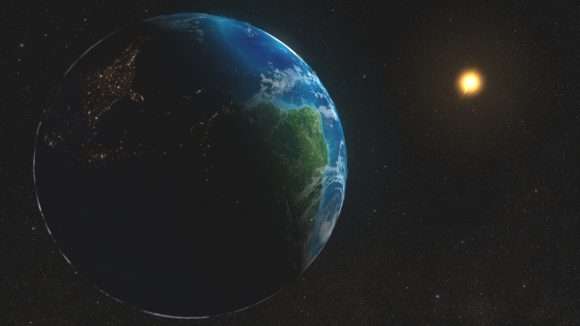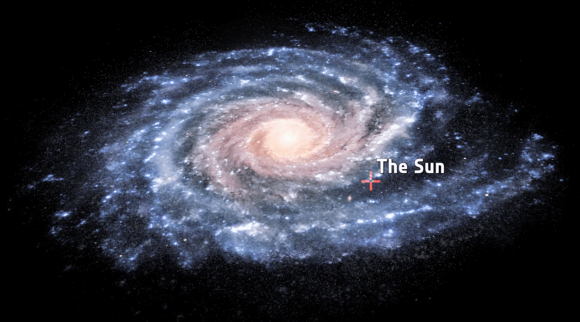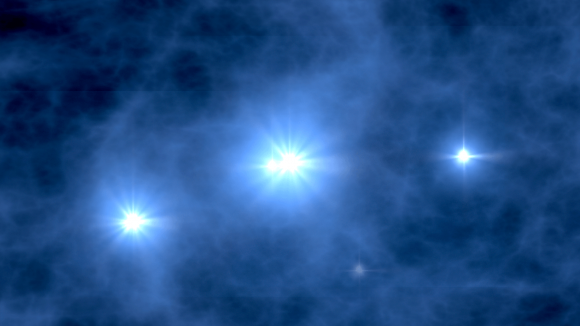Does our galaxy have a habitable zone?

I've got to say, you are one of the luckiest people I've ever met.
For starters, you are the descendant of an incomprehensible number of lifeforms who were successful, and survived long enough to find a partner, procreate, and have an offspring. Billions of years, and you are the result of an unbroken chain of success, surviving through global catastrophe after catastrophe. Nice going.
Not only that, but your lineage happened to be born on a planet, which was in just the right location around just the right kind of star. Not too hot, not too cold, just the right temperature where liquid water, and whatever else was necessary for life to get going. Again, I like your lucky streak.
In fact, you happened to be born into a universe that has the right physical constants, like the force of gravity or the binding force of atoms, so that stars, planets and even the chemistry of life could happen at all.
But there's another lottery you won, and you probably didn't even know about it. You happened to be born on an unassuming, mostly harmless planet orbiting a G-type main sequence star in the habitable zone of the Milky Way.
Wait a second, even galaxies have habitable zones? Yep, and you're in it right now.
The Milky Way is a big place, measuring up to 180,000 light years across. It contains 100 to 400 billion stars spread across this enormous volume.
We're located about 27,000 light years away from the center of the Milky Way, and tens of thousands of light-years away from the outer rim.
The Milky Way has some really uninhabitable zones. Down near the center of the galaxy, the density of stars is much greater. And these stars are blasting out a combined radiation that would make it much more unlikely for life to evolve.
Radiation is bad for life. But it gets worse. There's a huge cloud of comets around the Sun known as the Oort Cloud. Some of the greatest catastrophes in history happened when these comets were kicked into a collision course with the Earth by a passing star. Closer to the galactic core, these disruptions would happen much more often.
There's another dangerous place you don't want to be: the galaxy's spiral arms. These are regions of increased density in the galaxy, where star formation is much more common. And newly forming stars blast out dangerous radiation.
Fortunately, we're far away from the spiral arms, and we orbit the center of the Milky Way in a nice circular orbit, which means we don't cross these spiral arms very often.

We stay nice and far away from the dangerous parts of the Milky Way, however, we're still close enough to the action that our solar system gathered the elements we needed for life.
The first stars in the universe only had hydrogen, helium and a few other trace elements left over from the Big Bang. But when the largest stars detonated as supernovae, they seeded the surrounding regions with heavier elements like oxygen, carbon, even iron and gold.
Our solar nebula was seeded with the heavy elements from many generations of stars, giving us all the raw materials to help set evolution in motion.
If the solar system was further out, we probably wouldn't have gotten enough of those heavier elements. So, thanks multiple generations of dead stars.
According to astrobiologists the galactic habitable zone probably starts just outside the galactic bulge – about 13,000 light-years from the center, and ends about halfway out in the disk, 33,000 light-years from the center.
Remember, we're 27,000 light-years from the center, so just inside that outer edge. Phew.

Of course, not all astronomers believe in this Rare Earth hypothesis. In fact, just as we're finding life on Earth wherever we find water, they believe that life is more robust and resilient. It could still survive and even thrive with more radiation, and less heavier elements.
Furthermore, we're learning that solar systems might be able to migrate a significant distance from where they formed. Stars that started closer in where there were plenty of heavier elements might have drifted outward to the safer, calmer galactic suburbs, giving life a better chance at getting a foothold.
As always, we'll need more data, more research to get an answer to this question.
Just when you thought you were already lucky, it turns out you were super duper extra lucky. Right universe, right lineage, right solar system, right location in the Milky Way. You already won the greatest lottery in existence.
Source: Universe Today





















